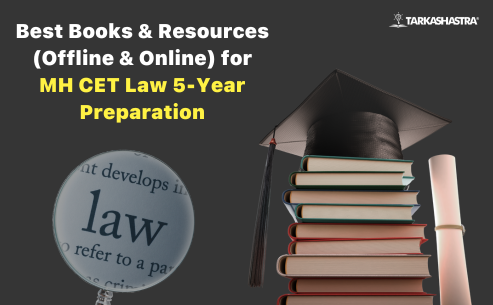Choosing a career path right after Class 12 is no small decision. In a world where every other student is headed towards engineering, medicine, or commerce, there’s one stream that’s quietly but steadily gaining momentum—law. And at the heart of this growing trend lies the CLAT (Common Law Admission Test), the most prestigious law entrance exam in India.
Every year, over 60,000 students from across the country appear for CLAT UG in hopes of securing a seat at the top National Law Universities (NLUs).
Why? Because a career in law today is no longer limited to dusty courtrooms or monotonous paperwork. It’s dynamic, high-paying, intellectually stimulating, and offers career paths that span from courtrooms to corporate boardrooms, policy think tanks, social activism, international diplomacy, and even entrepreneurship.
But that raises a critical question: “Why should you take CLAT 2026?”
If you’re even remotely interested in law, justice, social change, governance, or simply want a degree that keeps all doors open, this blog is for you.
In this detailed guide, we’ll explore the Top 5 compelling reasons to take the CLAT 2026. We’ll dig deep into how this one exam can unlock a lifetime of possibilities—from getting into India’s most elite law colleges to building careers with purpose, prestige, and power.
Whether you’re from a metro city or a small town, a Humanities topper or a Science stream survivor—CLAT could be your golden ticket to a future that truly matters.
Let’s begin.
What is CLAT UG and why is it Important?
Before we dive into the top reasons to take CLAT 2026, it’s essential to understand what the exam actually is—and why it holds such a powerful place in the Indian education landscape.
What is CLAT UG?
CLAT (Common Law Admission Test) UG is a national-level entrance exam conducted every year for admission to undergraduate law programs (BA LL.B.) offered by National Law Universities (NLUs) and several other participating institutions.
The exam is conducted by the Consortium of National Law Universities, which consists of 25 NLUs across India.
CLAT UG – At a Glance
| Feature | Details |
| Full Form | Common Law Admission Test (Undergraduate) |
| Conducted By | Consortium of National Law Universities |
| Courses Offered | 5-year integrated law courses (BA LL.B., BBA LL.B., etc.) |
| Number of NLUs | 26 Participating NLUs |
| Exam Mode | Offline (Pen & Paper Based) |
| Duration | 2 Hours |
| Total Questions | 120 |
| Subjects Tested | English, Current Affairs including GK, Legal Reasoning, Logical Reasoning, Quantitative Techniques |
| Official Website | https://consortiumofnlus.ac.in |
Why is CLAT UG Important?
CLAT UG is not just a law entrance exam—it’s a gateway to India’s legal elite. Here’s why:
1. Admission to NLUs: The IITs of Law
Just as JEE gets you into IITs, CLAT gets you into NLUs, which are widely considered the best law schools in the country. Some of these institutions—like NLSIU Bengaluru, NALSAR Hyderabad, and NUJS Kolkata—rank among the top in Asia.
2. CLAT Score Accepted Beyond NLUs
Over 60 private and deemed universities also accept CLAT scores, including:
- Jindal Global Law School (JGLS)
- UPES Dehradun
- NMIMS School of Law
- MIT-WPU Pune
So, a good CLAT score opens the door to multiple premium law colleges in one go.
3. Career Opportunities from Day 1
NLUs are not just academically rigorous—they offer placement cells, internship pipelines, and global exposure from the very first year. Top-tier law firms, multinational corporations, think tanks, and even international organizations recruit directly from campus.
4. CLAT Preparation Builds a Strong Foundation
The subjects covered in CLAT—like legal reasoning, GK, and reading comprehension—don’t just help in law school admissions. They lay the foundation for:
- UPSC & other government exams
- Judicial services
- International law programs
- Corporate leadership roles
CLAT vs Other Law Entrance Exams
| Feature | CLAT UG | AILET | SLAT | CUET (Law) |
| Accepted By | 26 NLUs + 60+ colleges | NLU Delhi | Symbiosis Law Schools (SLS) | Central & State Universities |
| Total Seats | ~3,000+ across NLUs | ~123 at NLU Delhi | ~1080 across SLS campuses | Varies |
| Test Sections | 5 (English, GK, Legal, Logic, Quant) | English, GK, Logical Reasoning | RC, Analytical, Logical, Legal Reasoning, and GK | Depends on university |
| Exam Authority | Consortium of NLUs | NLU Delhi | Symbiosis University | NTA |
| Level of Difficulty | Moderate to Tough | Tougher (Legal-focused) | Moderate | Varies |
In short, CLAT is the flagship law exam in India—the one that opens the widest number of doors, carries the most prestige, and prepares you for both college and career with equal strength.
Reason #1: Admission to India’s Top NLUs – The IITs of Law
When someone says “I want to do law”, the immediate follow-up should be—“From where?”
Because just like engineering from IITs or management from IIMs, law from NLUs is a brand in itself.
Appearing for CLAT 2026 gives you the opportunity to enter India’s most prestigious law schools—the National Law Universities (NLUs)—which are widely considered the IITs of Law.
What Makes NLUs So Special?
Academic Excellence
- NLUs follow a rigorous academic structure with top-notch faculty, most of whom are alumni of Harvard, Oxford, Cambridge, and other premier institutions.
- Interdisciplinary approach: law + economics, sociology, international relations, etc.
- Constantly updated curriculum based on contemporary legal issues.
Global Recognition
- Degrees from top NLUs like NLSIU Bengaluru, NALSAR Hyderabad, and WBNUJS Kolkata are well-regarded by international universities and employers alike.
- NLU alumni have gone on to pursue LL.M.s at Harvard, Yale, Oxford, Cambridge, NYU, and more.
Campus Culture
- Vibrant student life: debates, moots, Model UNs, legal aid clinics, research cells, and start-up incubators.
- Networking with future judges, lawyers, bureaucrats, and policymakers.
Top NLU Rankings & Placement Highlights
Here’s a quick comparison of the Top 10 NLUs (based on placements, academic rigour, alumni success, and public perception):
| Rank | NLU Name | Location | Avg. CTC (2024) | Top Recruiters |
| 1 | NLSIU Bengaluru | Karnataka | ₹18–20 LPA | Shardul Amarchand, Khaitan, AZB |
| 2 | NALSAR University of Law | Hyderabad | ₹16–18 LPA | Trilegal, CAM, ICICI |
| 3 | WBNUJS | Kolkata | ₹15–17 LPA | JSA, L&L Partners, S&R Associates |
| 4 | NLU Delhi* (via AILET) | New Delhi | ₹18–19 LPA | Foreign firms, UNDP, Cyril Amarchand |
| 5 | NLU Jodhpur | Rajasthan | ₹14–16 LPA | Tier-1 firms, PSUs, RBI |
| 6 | GNLU | Gandhinagar | ₹12–14 LPA | Adani, Khaitan, Gujarat HC |
| 7 | MNLU Mumbai | Maharashtra | ₹11–13 LPA | Tata Group, Shardul Amarchand |
| 8 | RGNUL | Patiala | ₹10–12 LPA | In-house counsel, litigation, firms |
| 9 | NLU Odisha | Cuttack | ₹9–11 LPA | Tier-2 law firms, legal startups |
| 10 | HNLU | Raipur | ₹8–10 LPA | Litigation, LPOs, judicial internships |
*Note: NLU Delhi conducts a separate exam (AILET), not through CLAT.
Other Benefits of Getting Into a Top NLU
| Advantage | Description |
| Campus Placements | Dream legal firms visit directly. Most students get placed before graduation. |
| Scholarships & Fellowships | Opportunities like Rhodes, Chevening, INLAKS become accessible. |
| Judiciary/UPSC Edge | Strong legal foundation for judiciary and civil services preparation. |
| Start-Up & Policy Exposure | Students incubate legal-tech startups and contribute to policy think tanks. |
| International Internships | Opportunities with the United Nations, WTO, World Bank, etc. |
Alumni Voices
“Getting into NLSIU via CLAT changed my life. I went from a small town in MP to working with an international law firm in Singapore. The NLU tag opens doors you don’t even know exist.”
— Shrishti Rao, NLSIU Bengaluru, Batch of 2021
Why This Matters for You
- If you want top-tier legal education, elite placements, and limitless opportunities, you must aim for NLUs through CLAT.
- Even getting into a mid-ranked NLU is miles ahead of average private law schools in terms of exposure and outcomes.
- The difference between a ₹3 LPA vs ₹20 LPA starting salary often begins at your choice of college.
Reason #2: Diverse Career Options Beyond Just Law Firms
One of the biggest myths about a career in law is that it leads you to just one destination: courtrooms. But the truth is, a degree from a top NLU unlocks opportunities across sectors you probably haven’t even considered yet.
Law today is not just a profession—it’s a gateway to leadership roles across industries, governance, policy, entrepreneurship, and global diplomacy.
Here’s how:
Top Career Paths After CLAT + NLU
| Career Path | What It Involves | Who It’s For |
| Corporate Law | M&A, contract drafting, compliance, advisory in top-tier law firms | Analytical thinkers, commercial acumen |
| Litigation & Advocacy | Practicing in High Courts, Tribunals, Supreme Court | Confident speakers, problem-solvers |
| Judiciary | Appear for Judicial Services Exam to become a judge | Detail-oriented, fair-minded individuals |
| Civil Services (UPSC) | IAS, IFS, IRS roles; law helps in Ethics, Polity, and Optional Paper | Nation-builders, policy enthusiasts |
| In-House Counsel | Working with companies like Tata, Google, Amazon | Business-minded legal experts |
| Legal Journalism | Writing for legal magazines, media houses, think tanks | Writers, researchers, public communicators |
| Legal Academia | Teaching & research at universities in India or abroad | Deep thinkers, mentors |
| Policy & Governance | Working in think tanks, ministries, NGOs, international organisations | Strategic, empathetic changemakers |
| Entrepreneurship | Starting legal-tech firms, consultancies, or edtech platforms | Risk-takers, innovators |
| International Law | Working with UN bodies, WTO, global NGOs after LLM from top universities | Globally inclined, ambitious professionals |
Sample Employers Hiring Law Graduates from NLUs
| Sector | Employers / Institutions |
| Law Firms | Shardul Amarchand, Cyril Amarchand, Khaitan, Trilegal, AZB, L&L |
| Corporate | Reliance, TCS, Adani, Infosys, ICICI, HDFC, Amazon, Flipkart |
| Consulting/Policy | Vidhi Legal, PRS Legislative, NITI Aayog, Brookings, UNDP, World Bank |
| Media/Journalism | ThePrint, Bar & Bench, LiveLaw, The Wire, Scroll |
| Government | UPSC, State PSCs, Indian Judiciary, Lok Sabha Secretariat |
| International | Oxford, Cambridge, UN, WTO, Amnesty International, ICJ |
Case-in-Point: A Day in 3 Different Legal Lives
| NLU Graduate | Career Track | What Their Day Looks Like |
| Ananya (NALSAR, 2022) | Corporate Lawyer @ AZB | Drafting contracts, negotiating M&A deals, client meetings |
| Kunal (NLU Jodhpur, 2020) | Civil Servant (IAS) | Policy planning, welfare schemes, inter-departmental reviews |
| Riya (NUJS, 2021) | Legal Journalist @ LiveLaw | Covering court proceedings, analysing judgments, reporting cases |
Why It Matters
- With a law degree, you are never stuck on one path.
- You can start in corporate law and switch to policy, or begin with litigation and move into tech law.
- In a rapidly evolving world, law degrees are flexible, adaptable, and future-ready.
CLAT doesn’t just prepare you for law school—it prepares you for leadership in the real world.
Alumni Perspective
“I joined law school to become a lawyer. Five years later, I’m working at a policy think tank advising Parliament. Law gave me the tools to impact lives at scale.”
— Siddharth Mehta, GNLU Alumnus, Policy Researcher at Vidhi Legal
Reason #3: High Earning Potential & Stable Career Growth
Let’s face it—career decisions are not just about passion, but also about financial stability and long-term growth. And in this department, law—especially from a top NLU—delivers impressively. Contrary to outdated beliefs, a law graduate is not destined for underpaid legal aid roles.
Today’s NLU passouts are earning starting packages that rival IIT and IIM graduates, thanks to booming demand in corporate law, arbitration, compliance, and legal consulting.
CLAT to CTC: How Law Grads Earn Big
| Law School | Average CTC (2024) | Top Package (Domestic) | Top Firms Hiring |
| NLSIU Bengaluru | ₹18–20 LPA | ₹22 LPA+ | CAM, SAM, AZB, Khaitan, Trilegal |
| NALSAR Hyderabad | ₹16–18 LPA | ₹20 LPA+ | Shardul Amarchand, Tier-1 Law Firms |
| NUJS Kolkata | ₹15–17 LPA | ₹19 LPA | L&L Partners, S&R Associates, ICICI |
| NLU Jodhpur | ₹14–16 LPA | ₹18 LPA | Khaitan, JSA, Infosys Legal |
| GNLU Gandhinagar | ₹12–14 LPA | ₹16 LPA | Adani, Tata, Reliance, Tier-2 firms |
| MNLU Mumbai | ₹11–13 LPA | ₹15 LPA | Trilegal, In-house corporate teams |
Note: These are average packages for top performers. Even mid-level performers from NLUs often earn ₹6–10 LPA in their first job.
Where Does the Money Come From?
Corporate Law Firms
- Pay the highest packages, especially for roles in M&A, Arbitration, IP Law, and Competition Law.
- Indian Tier-1 firms and global Magic Circle firms offer packages exceeding ₹20 LPA for top law school grads.
In-House Counsel Roles
- Legal departments of companies like Amazon, Google, Tata, Aditya Birla, and Flipkart hire NLU grads for contract and compliance roles.
- Slightly lower starting salaries (~₹8–12 LPA) but excellent work-life balance.
Litigation with a Corporate Edge
- Lawyers practicing in High Courts and Supreme Court post-NLU often earn ₹20K–₹50K/month in early years, but grow to ₹25–50 LPA+ in a few years if they build strong practices.
Consulting & Policy Think Tanks
- Organisations like PRS Legislative, Vidhi Centre, and NITI Aayog pay ₹8–15 LPA for policy/legal advisory roles.
Judiciary & UPSC
- Though not high paying at the start, roles like Judicial Magistrate, IAS, or Legal Advisor come with job security, respect, and pension benefits.
Career Growth: 5 Years, 10 Years, 20 Years
| Career Stage | Corporate Law | Judiciary / UPSC | Policy / Legal Advisory |
| After 5 Years | ₹25–30 LPA as Associate | Civil Judge / IAS Officer | Senior Analyst / Consultant |
| After 10 Years | ₹50–80 LPA as Partner-track | District Judge / Secretary | Director / Ministry Advisor |
| After 20 Years | ₹1 Cr+ as Equity Partner | High Court Judge / Chief Secy | CEO of NGO / Global Think Tank Head |
Global Opportunities
NLU grads frequently pursue LL.M.s from universities like:
- Harvard, Oxford, Cambridge, LSE, NYU, Columbia
- These open doors to international arbitration, UN appointments, World Bank legal advisory, and more, with salaries often exceeding ₹1 crore+ globally.
Why This Matters
- Law isn’t just about courtroom drama. It’s about strategy, influence, and structured thinking skills that top companies pay for.
- With a degree from a reputed NLU, your earning potential accelerates faster than most traditional degrees.
- And unlike volatile careers, legal knowledge appreciates in value—you only become more powerful and respected with experience.
“Law gives you influence, income, and independence—all in one career.”
Reason #4: Law as a Tool for Social Impact and Nation-Building
Most people associate law with rules, regulations, and litigation. But the truth is, the law is one of the most powerful instruments of social change.
From shaping policy to fighting injustice, from empowering the voiceless to defending constitutional rights, lawyers are at the heart of every significant reform movement in India and across the world.
If you’ve ever wanted to make a difference in the world, CLAT is your gateway to doing it with purpose, power, and precision.
How Law Drives Change?
Policy Advocacy & Legal Reforms
- Law grads from NLUs often work with think tanks like Vidhi Legal, PRS Legislative Research, or directly with Members of Parliament.
- They draft policies, propose amendments, and review bills before they become law.
Access to Justice & Legal Aid
- Many NLUs have Legal Aid Clinics that help underprivileged communities.
- As a student, you get to work on real cases—assisting victims of domestic violence, tenants being evicted unfairly, or labourers denied wages.
Environmental & Human Rights Law
- Landmark cases like clean air directives, LGBTQ+ rights, or tribal land protection have been fought—and won—by lawyers trained at top law schools.
- NLUs offer exposure to public interest litigation (PILs) that shape the nation’s legal landscape.
Representation in International Forums
- Law graduates also work with the United Nations, Amnesty International, the World Bank, and other global bodies to push for gender rights, refugee support, and climate justice.
Notable Change-Makers from NLUs
| Name | NLU | Contribution |
| Chinmayi Arun | NLSIU Bengaluru | Co-founder of Centre for Communication Governance (CCG) |
| Vrinda Grover | Delhi Univ (Guest Prof @ NLUs) | Human Rights Lawyer, fought for 377 repeal |
| Alok Prasanna Kumar | NLSIU Bengaluru | Co-founder, Vidhi Legal – Legal reform & policy leader |
| Meenakshi Lekhi | NLU Alumnus (Leg background) | Politician & Supreme Court Advocate |
“A lawyer doesn’t just interpret the law—they rewrite history with it.”
Law + Social Impact in Law School
| Initiative Type | Examples from NLUs |
| Legal Aid Clinics | Free legal support to rural & urban underprivileged |
| Human Rights Cells | Workshops, case studies, research in rights-based law |
| Social Justice Projects | Internships with NGOs, PIL drafting, awareness drives |
| Moot Courts | Simulated courtrooms to practice constitutional law |
Fellowships & Grants for Law Students
| Fellowship/Program | Benefit |
| Young India Fellowship | Liberal education + policy exposure |
| Legislative Assistants to MPs (LAMP) | Work directly under MPs on live Bills |
| Teach for India | Education equity for underprivileged children |
| JAG for Indian Army | Serve the country through Judge Advocate General branch |
Why This Matters
- Not all students want to chase corporate jobs—and that’s okay.
- If you’re passionate about impact over income, law can still give you a dignified, respectable, and fulfilling career.
- Unlike other professions, law gives you a voice, and when used well, that voice can move mountains.
In a democratic society, lawyers are not just professionals. They’re protectors of justice, guardians of liberty, and builders of better systems.
Reason #5: Strong Foundation for UPSC, Judiciary & International Exams
Law isn’t just a career in itself—it’s also a launchpad for multiple prestigious career paths.
If you’ve ever thought about cracking UPSC, becoming a judge, pursuing an LLM abroad, or entering public policy, a law degree from an NLU gives you the best head start.
Here’s how CLAT and your 5-year law journey can open up elite doors beyond legal practice.
1. Judicial Services: Become a Judge in Your 20s
- After graduation from an NLU, you are directly eligible for Judicial Services Exams (PCS-J) in almost every Indian state.
- You can become a Judicial Magistrate or Civil Judge (Junior Division) before the age of 28.
- NLUs prepare you with deep exposure to core subjects like:
- Criminal Law
- Constitutional Law
- Civil Procedure Code
- Indian Penal Code
- Evidence Act
Thousands of judges across India today are NLU graduates who cracked PCS-J within a year of graduating.
2. UPSC & Other Civil Services
- Law is among the most scoring optional subjects in UPSC.
- Key CLAT sections (Current Affairs, Reading Comprehension, Reasoning) directly help with:
- Prelims (Polity, GK)
- Mains (GS Paper 2: Constitution & Governance)
- Essay paper
- A growing number of IAS officers today come from NLU backgrounds.
| Advantage | Why Law Students Excel in UPSC |
| Deep Understanding of Polity | In-depth reading of Constitution from Year 1 |
| Critical Reasoning Skills | Essential for Ethics, Essays, and Interviews |
| Exposure to Current Affairs | Built-in habit from Legal & GK prep |
| Optional Subject Advantage | Law Optional = high scoring & low competition |
3. International Education & LLM Pathways
Top law graduates from NLUs often pursue higher studies at:
- Harvard Law School
- University of Oxford
- Cambridge University
- Columbia Law School
- NYU, LSE, and the University of Melbourne
Why NLUs Stand Out Globally:
- Strong legal writing and research training
- International moot court wins
- Summer internships with the UN, World Bank, and WTO
- Strong recommendation network via professors & alumni
Many students also secure scholarships like Rhodes, Chevening, JN Tata Endowment, and INLAKS.
CLAT Preparation Itself Builds Exam Aptitude
| CLAT Section | Skill Developed | Helpful For |
| Legal Reasoning | Analytical skills, case interpretation | Judiciary, LLM, UPSC |
| Current Affairs / GK | Awareness of global and national issues | UPSC, International Exams |
| Reading Comprehension | Fast reading + retention | CSAT, IELTS, Essays |
| Logical Reasoning | Critical thinking | Civil Services, Judiciary |
| Quantitative Techniques | Basic aptitude skills | CSAT, GMAT |
A Foundation for Life, Not Just a Job
Unlike many degrees that lock you into one track, law from an NLU:
- Builds analytical, verbal, and logical aptitude
- Makes you comfortable with complexity
- Prepares you for multi-disciplinary careers across law, governance, business, research, diplomacy, and education
“I prepared for CLAT to get into law. But law school helped me crack UPSC. Today, I serve the country as an IAS officer.”
— Tanvi Rajput, NALSAR Alumna, IAS (2021)
Summary: Why This Matters
- CLAT gives you much more than law school admission. It builds a foundation for exams that most students start preparing for only after graduation.
- Whether it’s serving as a judge, cracking UPSC, or pursuing a global legal career, you’ll already have a massive head start with a law degree from a top NLU.
Bonus Section: Who Should Definitely Take CLAT 2026?
You’ve read about the prestige of NLUs, the diverse career paths, the salary potential, the social impact, and the global opportunities. But maybe you’re still asking yourself: “Is CLAT really for me?”
Let’s break it down. If you find yourself in any of the descriptions below, the answer is a loud, resounding YES.
1. Students Who Want a Career with Power, Prestige & Purpose
- You don’t want a tedious 9-to-5 job.
- You dream of working in Parliament, courtrooms, boardrooms, or maybe even the United Nations.
- You want a career that earns well, matters socially, and gives you room to grow intellectually.
CLAT opens doors to all three—money, meaning, and mastery.
2. Humanities, Commerce, and Even Science Students Looking for Clarity
- You’re not 100% sure you want to do Engineering, MBBS, or CA.
- You enjoy subjects like Political Science, English, GK, Economics, Business Studies, or even Biology or Physics, but don’t want to become a doctor or scientist.
- You like reading, arguing, writing, or understanding how the world works.
The law lets you explore all your interests while keeping future options wide open.
3. Debaters, Thinkers, and Readers
- You enjoy debates, Model UNs, quizzes, or just binge-watching Suits or Criminal Justice.
- You love questioning things—rules, structures, systems—and finding better solutions.
- You have strong communication skills, or you’re working to build them.
Law rewards curiosity, articulation, and structured thinking, just like CLAT tests.
4. First-Generation Professionals & Tier-2/Tier-3 City Students
- You want to break barriers and build a name.
- Your school may not have had many law aspirants, but you’re determined to do something big.
- You want to prove that talent matters more than geography.
CLAT is one of the few exams where you can come from anywhere and go everywhere.
5. Students Who Want Backup Options with One Exam
- You’re not 100% sure you’ll pursue law forever, but you want a strong academic foundation.
- CLAT score opens the door to NLUs + 60+ private law colleges.
- Even if you switch to policy, civil services, business, or academics, you’ll carry legal knowledge that’s always relevant.
Law is a universal skill that never goes out of demand.
Self-Assessment Checklist: Is CLAT for You?
| Statement | Yes / No |
| I like reading about news, politics, or real-world issues | |
| I enjoy logic puzzles, debates, or writing essays | |
| I want a respected, high-paying career | |
| I don’t want to do engineering, medical, or CA | |
| I want options: corporate, government, social impact |
If you ticked 3 or more boxes: CLAT 2026 might just be the perfect exam for you.
Real-Life Success Stories: How CLAT Changed Their Lives
It’s one thing to read about opportunities and another to hear how real students from different backgrounds cracked CLAT and built extraordinary careers—some in law firms, others in government, journalism, activism, and beyond.
Here are a few handpicked stories of CLAT aspirants turned trailblazers, showing that it’s not where you start, but how you rise.
1. From Tier-3 Town to Tier-1 Law Firm: Priya’s Story
Background: Small-town girl from Solapur, Maharashtra. First-generation college-goer.
CLAT Rank: AIR 812
College: NLU Jodhpur
Career Path: Corporate Law
Current Role: Associate at Shardul Amarchand Mangaldas
“I didn’t know what NLU even meant until Class 11. Tarkashastra’s mentors helped me crack CLAT despite no English-medium background. Today, I’m drafting international contracts and negotiating deals worth crores.”
2. The Activist Lawyer: Yusuf’s Story
Background: Raised in Delhi. Always interested in politics, activism, and social justice.
CLAT Rank: AIR 231
College: NALSAR Hyderabad
Career Path: Human Rights Law
Current Role: Legal Advisor at Amnesty International
“At NALSAR, I found both the ideology and the infrastructure to work for change. Moot courts taught me argumentation, internships taught me empathy. CLAT gave me the platform—I chose how to use it.”
3. From Law to LBSNAA: Ishaan’s Journey
Background: CBSE student from Jaipur, unsure whether to take Engineering or Law.
CLAT Rank: AIR 480
College: GNLU Gandhinagar
Career Path: UPSC
Current Role: IAS Officer (CSE 2022)
“My law degree was my biggest asset in UPSC—both as an optional and as a way of thinking. CLAT taught me structure, analysis, and clarity—all of which helped me rank in the Top 100.”
4. The Legal Journalist: Meera’s Impact
Background: English literature + Legal Studies in Class 12. Loved writing and speaking.
CLAT Rank: AIR 1209
College: RGNUL Patiala
Career Path: Legal Journalism
Current Role: Senior Correspondent at Bar & Bench
“Law school opened up legal journalism for me—a niche I didn’t know existed. I now cover court cases that make headlines and bring constitutional issues to the public. That’s power with purpose.”
🧳 5. Global Dreams, Indian Start: Sanika’s Success
Background: ICSE topper from Mumbai. Wanted to study abroad but chose NLU for affordability.
CLAT Rank: AIR 139
College: NUJS Kolkata
Career Path: LLM Abroad + Arbitration
Current Role: Associate at White & Case LLP, Singapore
“CLAT gave me the best return on investment. My NLU degree helped me get into NYU Law with a 70% scholarship. Now I work on cross-border cases in three different time zones!”
Takeaway
These aren’t stories of geniuses or privileged insiders. They’re stories of students who:
- Had the right guidance
- Made the right choices
- Worked with consistency and clarity
And it all started with a decision to appear for CLAT.
How to Start Preparing for CLAT 2026?
Now that you know why CLAT 2026 is worth attempting, the next question is: “How do I actually prepare for it?”
CLAT is not about mugging up facts. It’s about:
- Reading fast and well
- Thinking logically
- Staying updated with current affairs
- Practicing smartly
Here’s a month-by-month roadmap, section-wise strategy, and preparation essentials to kickstart your journey.
CLAT 2026 Preparation Timeline (July 2025 – Dec 2026)
| Month | Focus Area |
| Jul – Sep 2025 | Build strong foundation in all 5 sections |
| Oct – Dec 2025 | Start solving topic-wise sectional tests |
| Jan – Mar 2026 | Start full-length mocks, revise concepts |
| Apr – Jun 2026 | Strengthen weak areas + Reading Comprehension |
| Jul – Sep 2026 | Daily practice of mocks + GK booster revisions |
| Oct – Nov 2026 | Final revision, previous year papers, test series |
| Dec 2026 | CLAT 2026 (Expected) – Stay confident & revise |
Subject-Wise CLAT Preparation Strategy
1. English Language
- Focus: RC-based passages, vocabulary in context, grammar-based inference
- What to Do:
- Read The Hindu, Indian Express, The Economist
- Practice 2 RCs daily + grammar tests
- Maintain a vocab notebook
2. Logical Reasoning
- Focus: Argument-based MCQs, strengthening/weakening logic, assumptions
- What to Do:
- Solve 20–30 reasoning questions daily
- Refer to LSAT India papers
- Practice para-summary & conclusion identification
3. Legal Reasoning
- Focus: Principle-fact-based questions (no prior legal knowledge required!)
- What to Do:
- Practice 3–4 caselets daily
- Read fundamental legal maxims and landmark judgments (in simple language)
- Develop a habit of applying principles rather than memorizing the law
4. Current Affairs (with GK)
- Focus: National, international, legal news
- What to Do:
- Read daily newspaper + monthly compilations (Tarkashastra’s, GK Today, etc.)
- Revise monthly quizzes
- Focus on “Why” behind news, not just headlines
5. Quantitative Techniques
- Focus: Data interpretation, ratios, averages, percentages, basic arithmetic
- What to Do:
- Revise 9th–10th grade math fundamentals
- Practice DI caselets and bar/line graph interpretation
- Speed + accuracy = success
Must-Have Resources (Books + Tools)
| Section | Recommended Resources |
| English | Word Power Made Easy, SP Bakshi, RC Practice PDFs |
| Logical Reasoning | MK Pandey, LSAT Papers, CLAT sample questions |
| Legal Reasoning | Universal’s Legal Aptitude, CLAT Consortium passages |
| GK + Current | Tarkashastra GK Monthly, Drishti, GK Today |
| Quantitative | RS Aggarwal (Basic), Tarkashastra Quant Booklet |
Mock Test Strategy: The Game Changer
“Those who take 40+ mocks have 3X higher chances of cracking CLAT.”
| Stage | What to Focus On |
| Early Mocks | Focus on understanding question types |
| Mid-Stage Mocks | Build time management, eliminate silly errors |
| Final Phase Mocks | Exam-day simulation, speed + accuracy |
Review every single mock. Your marks will improve only if you learn from mistakes.
Should You Take Coaching?
| Situation | Coaching Helps If… |
| Self-discipline is inconsistent | You need structure & deadlines |
| Weak in English/Legal Reasoning | Mentors can boost clarity |
| No peer group | Coaching gives access to mock competitions |
Tarkashastra offers:
- Daily practice modules
- Weekly GK digest
- Full-length mocks
- 1-on-1 doubt-solving
Explore our CLAT 2026 Foundation & Crash Courses → [Link to Course Page]
Conclusion: Why CLAT 2026 Could Be Your Smartest Career Move
Choosing CLAT is not just about getting into law school—it’s about giving yourself options, opportunities, and a robust foundation to shape your future.
Whether your dream is to argue in the Supreme Court, work with the UN, become an IAS officer, fight for social justice, or negotiate billion-dollar deals in a glass tower, it all begins with one step:
Taking CLAT 2026.
You don’t need to have all the answers today. You don’t even need to be 100% sure you want to become a lawyer. What you need is the courage to explore a path that’s prestigious, flexible, impactful, and built for the future. Because the law is not just a profession. It’s a superpower.
Final Call to Action
Ready to start your CLAT 2026 journey? Let Tarkashastra be your guide.
- Expert Faculty from Top NLUs
- Structured Study Plan & Materials
- Real-Time Mock Test Analytics
- 1-on-1 Mentorship from NLU Graduates
- Affordable Online & Offline Batches
Book your Free Counselling Session now → [Insert CTA link] Or enroll directly in our CLAT 2026 Foundation Course → [Insert Course Page Link]
CLAT 2026 – FAQs (With Answers)
1. What is CLAT UG, and who conducts it?
CLAT UG (Common Law Admission Test – Undergraduate) is a national-level entrance exam conducted by the Consortium of NLUs for admission to 5-year integrated law programs at 26 National Law Universities in India.
2. Who is eligible to appear for CLAT 2026?
Students who have passed or are appearing in Class 12 (10+2) in any stream with a minimum of 45% (40% for SC/ST) are eligible to appear for CLAT UG 2026.
3. What is the exam pattern for CLAT 2026?
CLAT consists of 120 multiple-choice questions across 5 sections: English, Current Affairs including GK, Legal Reasoning, Logical Reasoning, and Quantitative Techniques. The exam duration is 2 hours.
4. How many times can I attempt CLAT?
There is no limit to the number of attempts. You can take CLAT as many times as you wish, provided you meet the eligibility criteria.
5. What is a good score in CLAT for Top NLUs?
A score of 90+ out of 120 typically lands candidates in the top NLUs like NLSIU, NALSAR, and NUJS. However, cut-offs vary by category and year.
6. Can I take CLAT after the Science/Commerce stream?
Yes, CLAT is open to students from all streams—Science, Commerce, or Humanities. No prior legal knowledge is required.
7. Is coaching necessary to crack CLAT?
While not mandatory, coaching helps with structured preparation, mock tests, time management, and expert guidance—especially useful if you’re starting from scratch or need motivation.
8. What are the best books to prepare for CLAT?
Recommended books include Word Power Made Easy for English, MK Pandey for Reasoning, Universal’s Legal Aptitude, and monthly GK digests. Practice papers and mocks are equally important.
9. Is CLAT tougher than CUET or IPMAT?
CLAT is generally considered tougher due to its complex reasoning and legal aptitude sections. However, with consistent preparation, it’s highly crackable.
10. How many seats are available through CLAT UG?
There are approximately 3,200+ seats across the 26 NLUs for the undergraduate 5-year integrated law program, including reserved categories.
11. Which colleges accept CLAT scores besides NLUs?
Over 60+ private universities, including JGLS, NMIMS, UPES, MIT-WPU, and Amity, accept CLAT scores for admission into their law programs.
12. Can I prepare for CLAT along with Class 12 boards?
Yes, with innovative time management, students can balance CLAT prep and school studies. Starting early (in Class 11 or early 12) gives a significant advantage.
13. Will CLAT 2026 be online or offline?
CLAT 2026 will be conducted in offline (pen-paper) mode at designated test centres across India.
14. What is the registration fee for CLAT 2026?
The registration fee is ₹4,000 for General/OBC candidates and ₹3,500 for SC/ST candidates. The fee is non-refundable.
15. What is the negative marking scheme in CLAT?
Each correct answer fetches +1 mark, and 0.25 marks are deducted for each wrong answer. Unattempted questions carry no penalty.
16. Can I appear for CLAT if I’m a dropper?
Absolutely. Many successful candidates take a drop year to prepare for CLAT. There’s no restriction based on the year of passing Class 12.
17. Are previous year CLAT papers important?
Yes, solving previous year papers helps you understand question patterns, difficulty levels, and improves time management and accuracy.
18. Is there any age limit for CLAT UG?
No. There is no upper age limit for appearing in CLAT UG as per the latest notification from the Consortium.
19. Can I get into a good law college if I don’t get into an NLU?
Yes, several reputed private law colleges accept CLAT scores and offer quality education and placements. However, NLUs are preferred for ROI and prestige.
20. How can Tarkashastra help me crack CLAT 2026?
Tarkashastra offers structured coaching, daily practice modules, mock tests, and mentorship from NLU alumni—all designed to help you crack CLAT with confidence and clarity.







